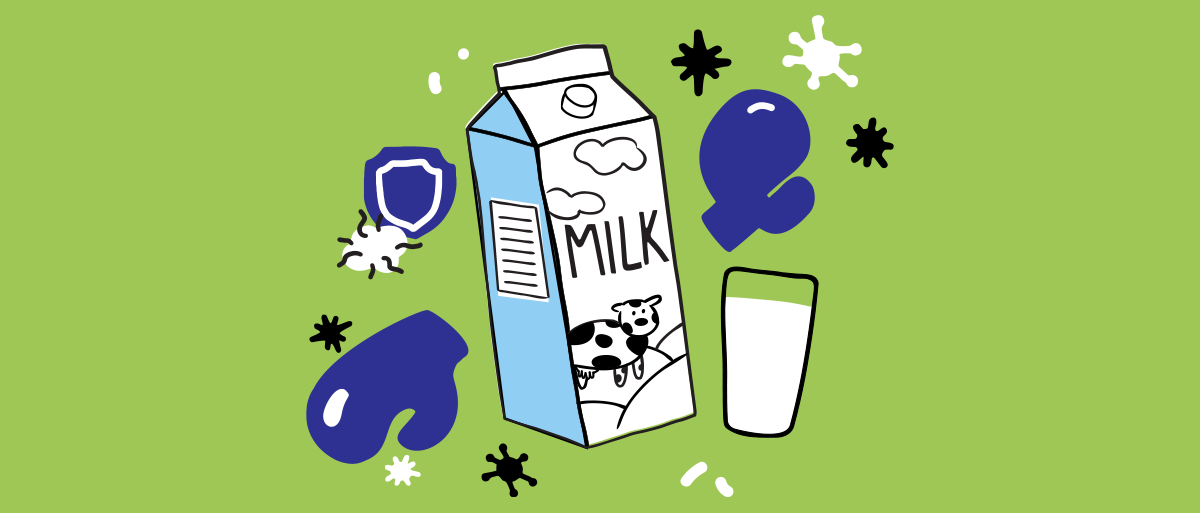Our immune systems can help protect us from getting sick – and promote healing when we are sick. But they need quality fuel to work properly. Milk is a staple food many of us already have in our fridges as a handy ingredient in coffee, smoothies, baking and so much more, as well as a drink by itself. It’s also something dietitians refer to as “nutrient dense,” meaning it gives you a lot of nutrients for relatively few calories.
You’ve probably heard about vitamin C in drinks like orange juice to boost the immune system – but it’s just one of many nutrients crucial to immune health. Five of milk’s 13 essential nutrients help keep your immune system working at its best.
- Vitamin A: Vitamin A helps shield you from infection and free radical toxins by boosting your white blood cells and the protective mucus membranes in your lungs and digestive tract. This helps prevent inflammation and disease. There’s 15% of your daily value of vitamin A in a one-cup serving of milk.
- Vitamin D: Almost every cell of your immune system has a vitamin D receptor, and there is strong evidence linking a lack of vitamin D with susceptibility to infection. But not only does vitamin D evidently boost your immune system, it may also help modulate it, benefitting people with autoimmunity (whose immune systems fight their own healthy cells). One serving of milk has 15% of your daily value of vitamin D.
- Protein: Protein is an important macronutrient that helps build and maintain muscle. But did you know that proteins also form antibodies? Antibodies are the things that learn to identify viruses and bacteria so your body can fight them – and so that it can respond quickly the next time you encounter the same pathogens a second time. You’ll get 16% of daily value of protein per serving of milk.
- Selenium: This is an antioxidant that helps reduce inflammation and improve immunity. Research shows that increased selenium is associated with a stronger immune response, and that selenium deficiency actually harms immune cell function. Fortunately, one serving of milk has 10% of your daily value of selenium.
- Zinc: This nutrient helps your immune system and is even important to wound healing. Try to proactively maintain healthy zinc levels through natural food sources. Milk offers 10% of your daily value of zinc per 8-oz. serving.
Milk is a great item to keep on hand, not only for its cooking versatility, but also because it provides nutrients essential to maximizing your health. And don’t forget fermented milk products, like yogurt and kefir: These support digestive health, which is also linked to healthy immunity and reduced inflammation.
Discover more about what real milk can do for you:




